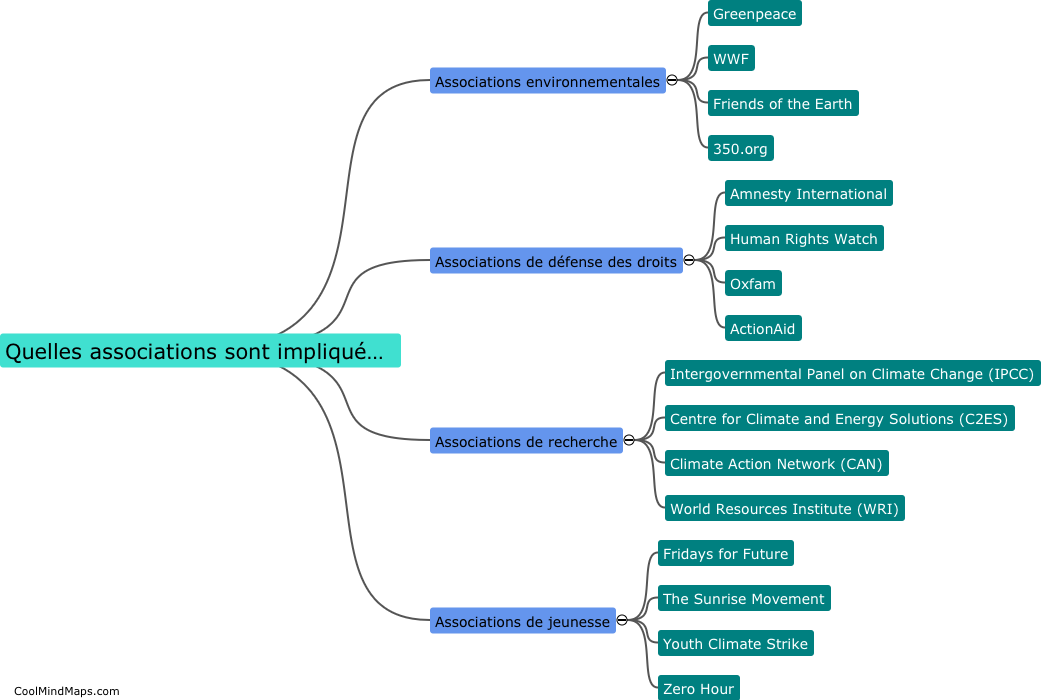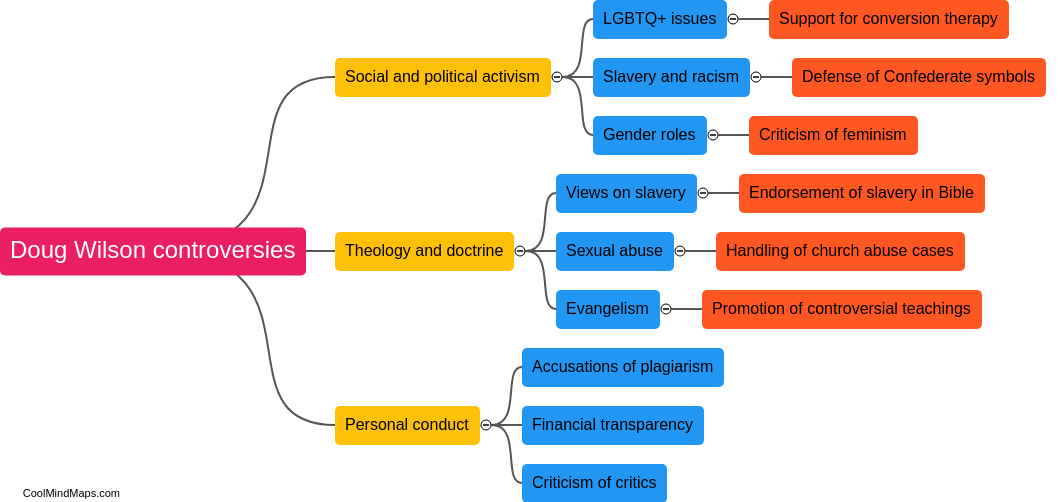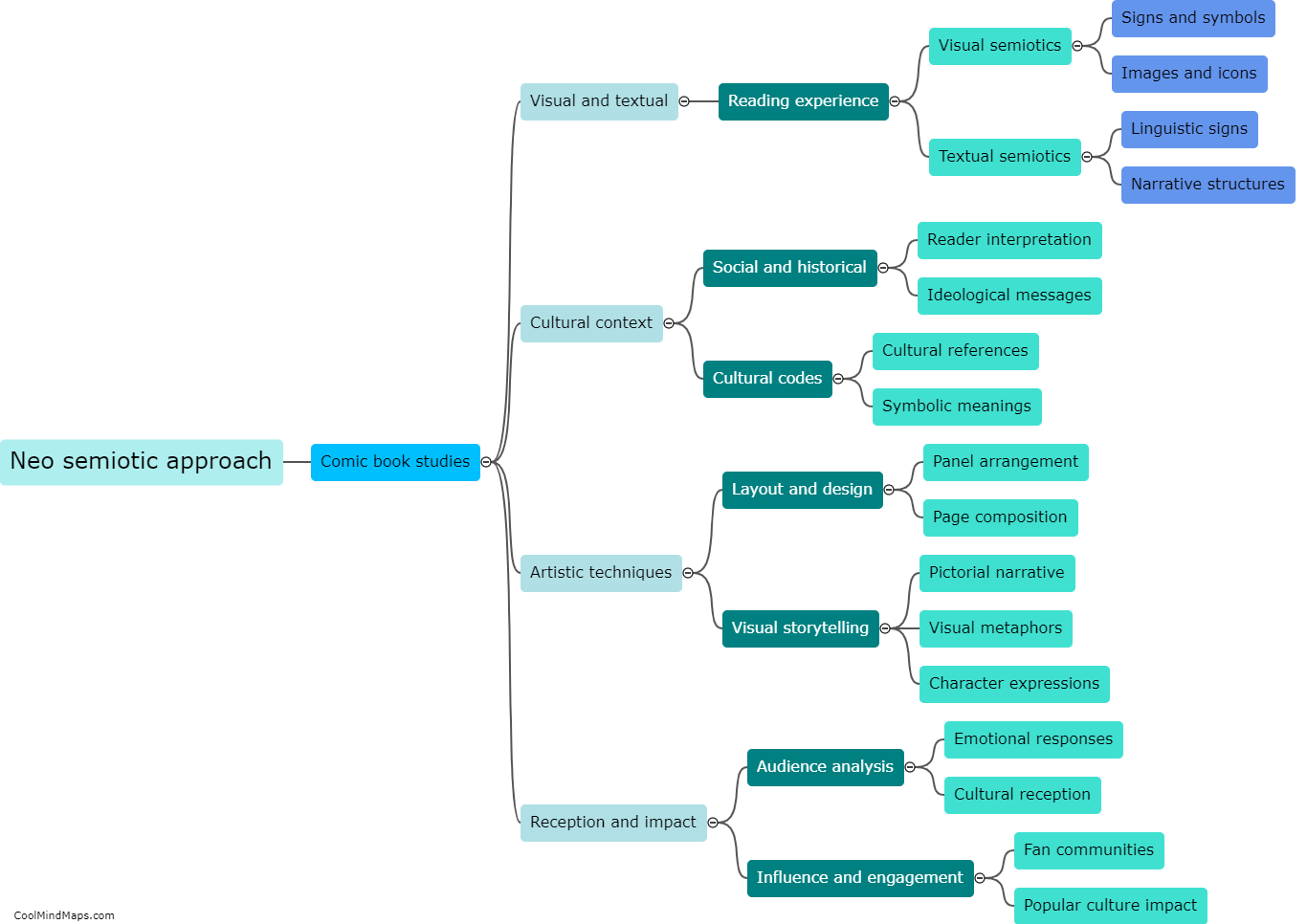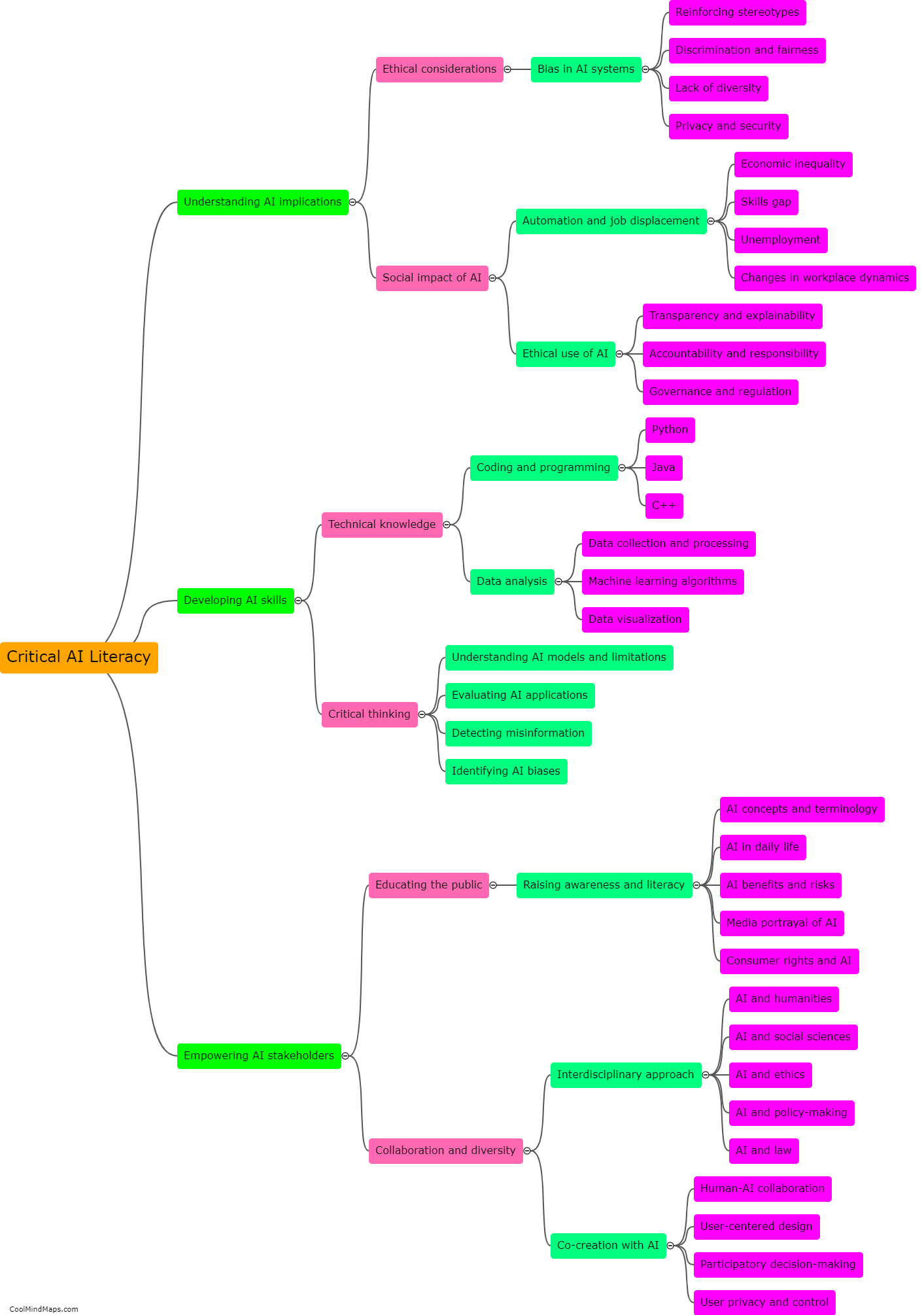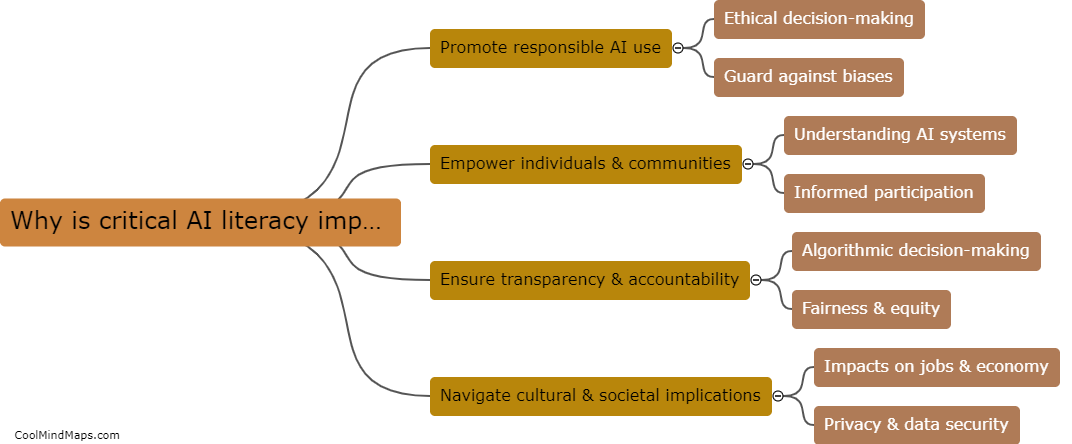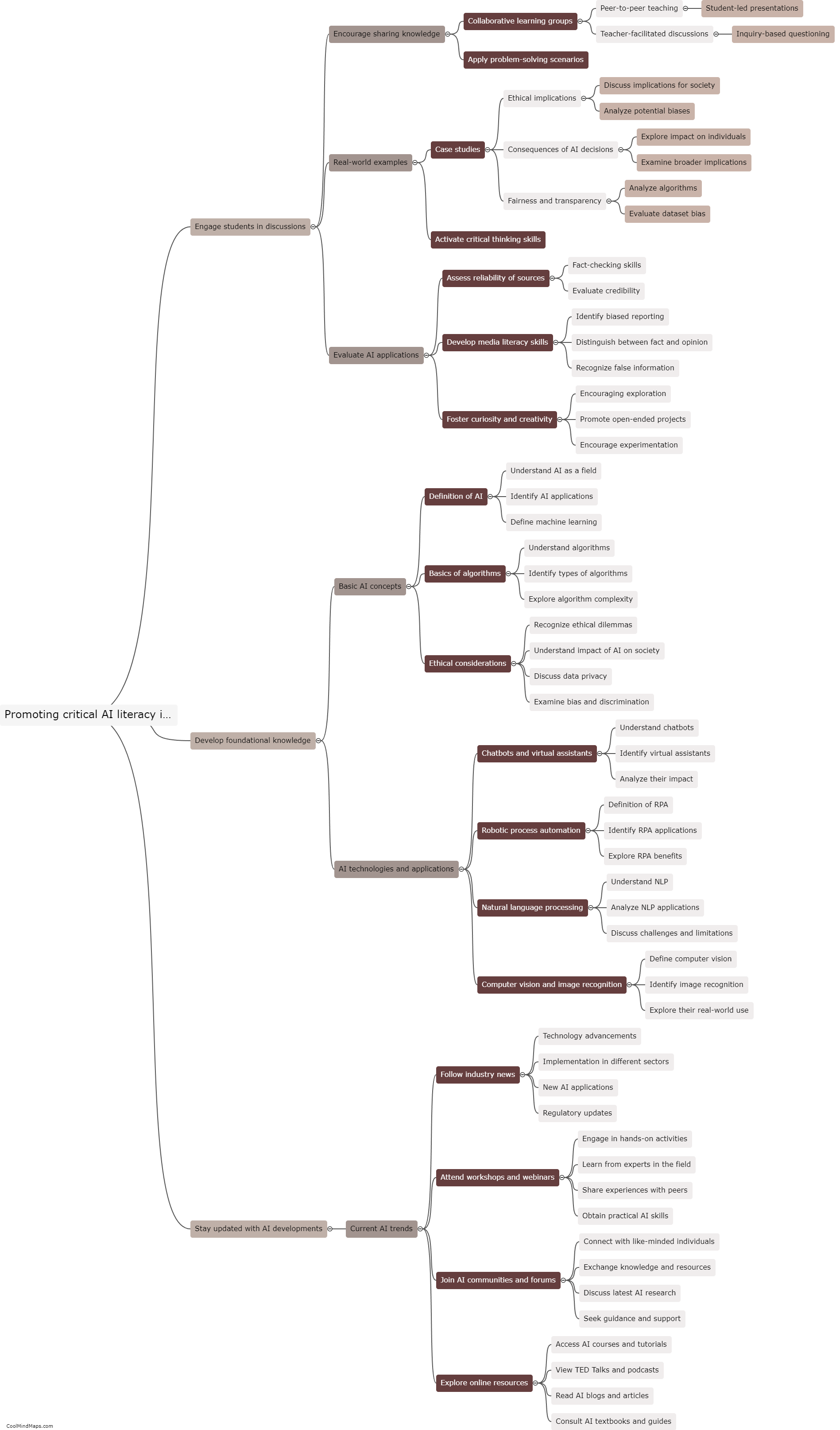What are the key components of critical AI literacy?
Critical AI literacy refers to the ability to understand, critically analyze, and make informed decisions about artificial intelligence (AI) systems. It involves a deep understanding of the key components that shape AI technologies. These components include technical knowledge of AI algorithms, data collection, and manipulation, as well as awareness of biases and ethical considerations in AI development and deployment. Additionally, critical AI literacy encompasses the ability to recognize the societal impacts of AI and its potential consequences. It also involves the skill to identify and address AI-related challenges and risks, such as job displacement and privacy concerns. Developing critical AI literacy is essential for individuals and communities to navigate AI-driven systems effectively and responsibly while ensuring transparency, accountability, and equity in the design and implementation of AI technologies.
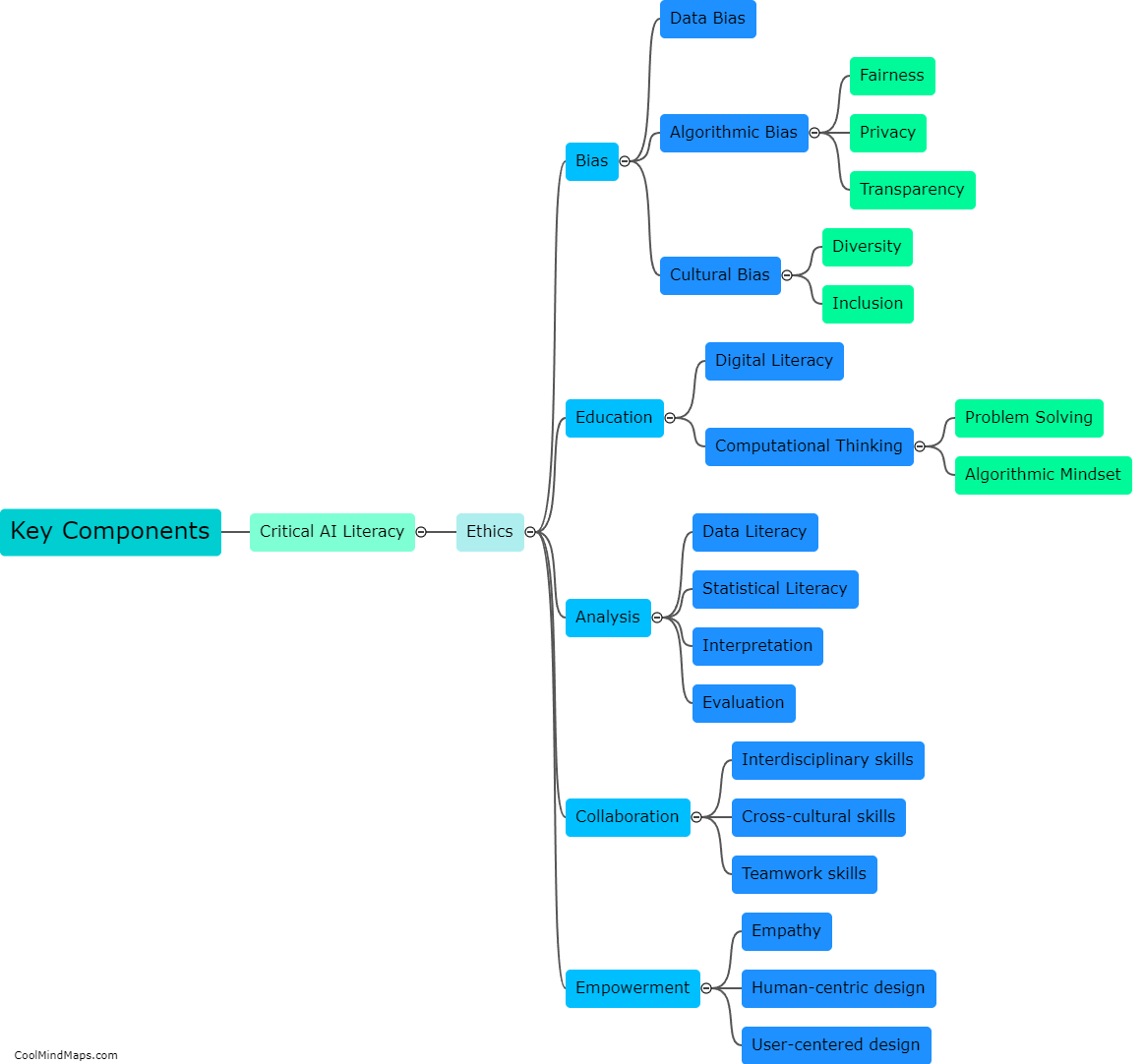
This mind map was published on 27 October 2023 and has been viewed 100 times.
